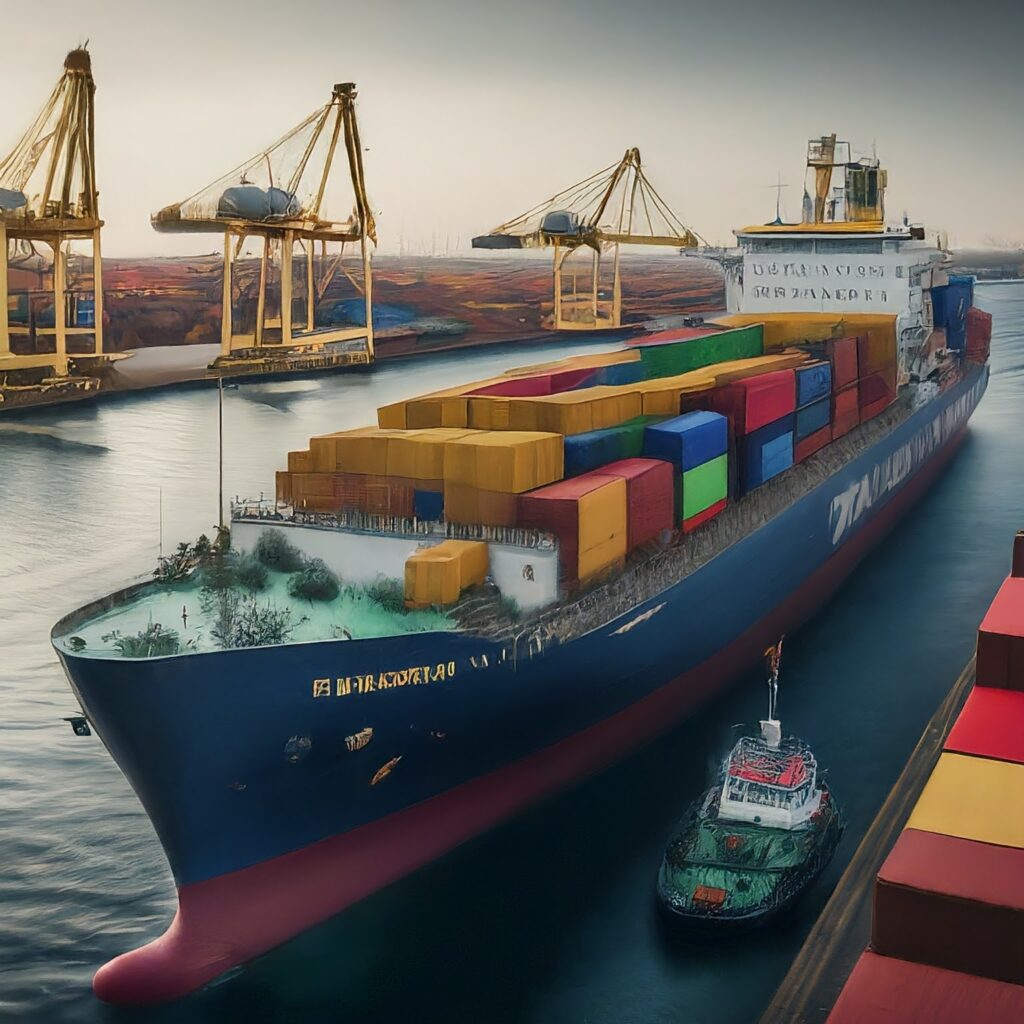What are INCOTERMS, and How Important are They in International Contracts?
As lawyers, we spend a lot of time fielding good, bad, weird, interesting, deep, superficial, and all types of other questions from people. We’re generally expected to be oracle-level wizards, a lot like people are treating AI now. In this series, we’ll share some of these questions that people ask us, along with our answers. For longtime China Law Blog readers, this “Quick Question” reboot will feel familiar.
Quick Question and Quick Answer Regarding INCOTERMS
Question. I have seen the term “INCOTERMS” on our international purchase agreements we receive from our suppliers. What do these refer to, and how important are they in the contract? Is it disastrous if we get them wrong?
Short Answer. INCOTERMS (International Commercial Terms) are very important in cross-border purchase agreements. If you are involved in international purchases or sales, you should familiarize yourself with how they are used, what they mean, and what they do not cover. Each has its own purpose, and they are universally used in the global goods trade.
Definition and Purpose of INCOTERMS
INCOTERMS are a set of commercial terms published by the International Chamber of Commerce (ICC). The ICC sets global trade rules, resolves disputes, and promotes international business standards and practices. INCOTERMS are designed to clearly communicate the tasks, costs, and risks associated with the transportation and delivery of goods in international trade. The primary purposes of INCOTERMS are to:
-
Standardize Trade Practices.
Provide a common structure and language for buyers and sellers worldwide, helping to reduce misunderstandings and disputes. INCOTERMS do not vary by the language used in the contract.
-
Allocate Responsibilities.
Clearly define which party is responsible for each stage of the shipping process, from loading and transport to insurance and customs clearance. These responsibilities can still require the input or cooperation of the other party.
-
Clarify Risk Transfer.
Specify when the risk of loss or damage to goods transfers from the seller to the buyer.
Key Benefits of Using INCOTERMS
Risk Management
INCOTERMS help in mitigating risks by explicitly stating the point at which risk transfers from the seller to the buyer for certain parts (not all) of the international transaction. This clarity helps in managing potential disputes arising from loss or damage to goods during transit.
Cost Allocation
They allocate the costs between the buyer and seller, including shipping, insurance, and export and import duties. This prevents unexpected costs and ensures both parties understand their financial responsibilities. The parties should also consider scenarios that may not be covered by INCOTERMS, such as force majeure-level delivery delays and additional delay-related costs such as demurrage at a port terminal.
Legal Compliance
Using INCOTERMS helps parties comply with international trade laws and regulations because they are widely recognized terms and used by customs authorities and other regulatory bodies worldwide.
Efficiency in Contract Negotiation
Incorporating standardized terms streamlines contract negotiations, which allows parties to focus on other critical aspects of the agreement rather than the specifics of logistics and transportation. But the parties will want to retain flexibility, especially for shipping to various destinations or countries.
Selection of Appropriate INCOTERMS
Commonly used INCOTERMS include:
- EXW (Ex Works). The buyer takes on all responsibilities, including transportation and risk, starting from pickup at the seller’s premises.
- FOB (Free on Board). The seller is responsible for costs and risks until the goods are on board the ship.
- CIF (Cost, Insurance, and Freight). The seller covers the costs and insurance to the destination port, but the risk transfers to the buyer once the goods are on the ship.
Incorporating INCOTERMS into Contracts
When drafting a cross-border purchase agreement, parties should:
- Specify the Chosen INCOTERMS. Clearly state the selected INCOTERMS (Year), along with the named place or port where the obligations transfer. For instance, “The goods will be delivered FOB Shanghai (Incoterms 2020).” Some companies continue to use Incoterms 2010, which vary somewhat from Incoterms 2020.
- Detail Additional Responsibilities. Outline any additional responsibilities or deviations from the standard INCOTERMS provisions. These can include specific risk allocation provisions, such as the logistics surrounding product compliance testing.
- Ensure Consistency. Align all sections of the contract with the selected INCOTERMS to avoid contradictions. Parties frequently fail to do this.
- Choose the terms that benefit you. One of our lawyers frequently discusses a major international litigation case where our client began the transaction using a standard Purchase Order (PO) with the least favorable INCOTERMS for themselves. The opposing party confirmed the transaction with their standard invoice, which also included the least favorable INCOTERMS for them.
Conclusion
In summary, INCOTERMS are essential in international contracts. They offer a standardized system that clarifies the responsibilities, risks, and costs involved in global trade. They also help mitigate risks, streamline negotiations, and ensure legal compliance by providing universally recognized terms.
Properly selecting and incorporating the right INCOTERMS into your contracts is crucial for smooth and efficient international transactions. By doing so, businesses can avoid misunderstandings, manage risks effectively, and ensure a seamless flow of goods across borders. Every entity and individual engaged in international trade should understand and utilize INCOTERMS. Pro tip: I like this chart for easy visual reference.
For more reading, see:
A Guide to Dispute Resolution Clauses in International Contracts

























